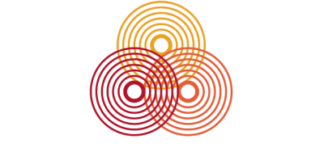Merrick native Paul G. Feinman, the first openly gay judge on New York’s highest court and a generous legal mentor to scores of young lawyers, died Wednesday after a yearslong battle with a blood disorder, state officials announced. He was 61 and lived on Roosevelt Island.
Feinman, who joined the New York Court of Appeals in 2017, retired from the court on March 23 to deal with his illness.
“Judge Feinman was a tireless and resolute champion of LGBTQ rights, a trailblazing pioneer for LGBTQ lawyers and judges and an incredibly dedicated mentor who inspired countless judges, attorneys and law students,” New York’s Chief Judge Janet DiFiore said in a statement announcing his death. “Judge Feinman was the essence of personal and professional integrity, decency and civility. No one who knew Judge Feinman could be unmoved by his personal warmth and empathy, good humor and sparkling intelligence. He was a singular human being who has left a proud and enduring legacy for all of us.”
When Feinman was tapped by Gov. Andrew M. Cuomo to serve on the state’s highest court — a watershed moment for gay New Yorkers — he called his longtime friend Tom Schuler, of Harlem, to tell him the news.
“He said ‘the governor just called me to tell me,’ ” Schuler recalled Wednesday. “He was ecstatic.”
On the day he was unanimously confirmed by the state senate, Feinman, according to a Newsday, said: “I just hope the governor chose me because he thought I was the best for the job.”
Cuomo, in a statement Wednesday, said he was “deeply saddened” to learn of Feinman’s death.
“It’s often said that law reflects the morals of society, and Justice Feinman reflected the very best of New York,” Cuomo said. “The first openly gay person to serve on the Court of Appeals, he was a lifelong champion of fairness, progress, equality, and justice — the very cornerstones of our state’s history and our country’s democracy.”
The LGBT Bar Association of Greater New York wrote on Twitter: “We are heartbroken to learn that our friend, NY Court of Appeals Judge Paul Feinman has passed. Not only did Judge Feinman make history with his appointment to NY’s highest court, he also broke down barriers and inspired LGBTQ people.”
Schuler, who recalled meeting Feinman — then an attorney — in the summer of 1991 at a house share on Fire Island, said the two bonded over their mutual interest in politics. Schuler said after Feinman became a judge, he was known in legal circles as a go-to mentor for lawyers looking to some day take a seat on the bench, particularly for those in the LGBTQ community.
“As his career progressed, he was like a mentor to many gays and lesbians who wanted to become judges,” said Schuler, who recalled people he had helped saying ” ‘Your friend Feinman is the best, he really gives the best advice.’ “
Among those Feinman mentored was Judge Deborah Kaplan, administrative judge of New York County Supreme Court’s Civil Term, who said she met Feinman more than two decades ago at a city bar association committee meeting, where the pair worked on a report on trial capacity in criminal court.
Kaplan, a colleague and close friend, remembered Feinman as “brilliant” with the “sharpest legal mind I’ve ever encountered.” She said Feinman, in addition to having “an incredibly keen wit,” was skilled at helping people identify their strengths.
“The thing you need to understand about Judge Feinman, he never took a step forward without reaching his hand back to pull up and bring along other people on the journey, which was dedicated to justice, and to push them forward on their own career and path.”
Born in 1960 in Hempstead, Feinman was one of five children, according to his state courts biography. He grew up in Merrick and graduated from John F. Kennedy High School in Bellmore. He graduated from Columbia University with a degree in French literature in 1981 and the University of Minnesota Law School in 1985. He also studied at the Université de Paris VII (Jussieu), the Université de Paris II (Assas) and the Université de Lyon III.
An avid admirer of French culture, in recent years he took his nieces and nephews on trips to France for each of their 16th birthdays, friends said.
Feinman started his career as a staff attorney for the appeals bureau of the Legal Aid Society of Nassau County. He later worked for Legal Aid in Manhattan. From 1989 to 1996, he clerked for Justice Angela M. Mazzarelli. He was first elected a judge in 1996 and from 1997 to 2001 was assigned to criminal court.
In 2004, he was designated an acting Supreme Court justice in Manhattan. He was then appointed to the first department of the Appellate Division of the state Supreme Court in October 2012.
When Feinman, who was then the president of the Lesbian and Gay Law Association of Greater New York and a judge’s clerk, first ran for a judgeship in a contested Democratic primary in 1996, he won the much-coveted endorsement of the New York Times.
The Times, which noted his opponent had “broader experience,” threw its support to Feinman. “We are impressed by Mr. Feinman’s even temperament and the high regard for him within the court system,” the Times wrote in its endorsement.
One of Feinman’s rulings made headlines, when in 2011, he threw out a lawsuit from a firefighter who tried to block the development of a controversial plan to build a mosque near the 9/11 memorial.
Feinman, as a judge, also personally performed marriages for scores of couples.
“When gay marriage was approved in 2011, there wasn’t a gay wedding he turned down,” said Schuler. “Anyone that would ask, he would say yes. He was so proud to be able to do that.”
Feinman is survived by his husband, Robert Ostergaard; his mother, brother and sister. Funeral services will be private.







